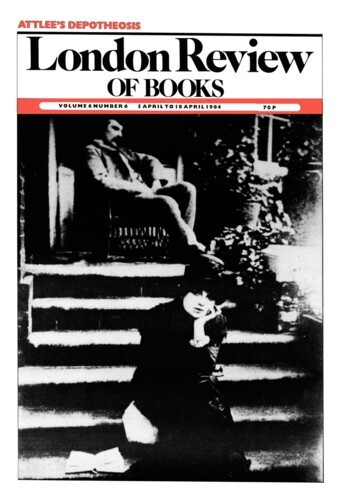Edwin Muir at Leuchars Junction
I think of Edwin Muir
in the darkness before dawn at Leuchars Junction
commuting to the Food Office in Dundee.
Where had he lost his way,
the track of vision lost in chaos
as Glasgow swallowed once the track of childhood?
A precarious order collapsed
like those houses in St Andrews bombed last night;
Kafka, from an interpreter of divine meanings
become a writer of fictions, allegories of invention.
No, not lost – light of a kind
raises a world out of nothing –
not lost beyond invention, the last resource
discovering a half-blighted paradise
(warplanes too will be part of the fable
and the strange blessings that rain in the night).
He resumes his journey in the Vale of Eden.
Thank you for your letter
and the small gift, that metonymy
which was as wonderful in its way
as the seeming-dead twig from the Kalahari
which sprouted green in a tooth-mug here.
It was better than nothing, though in this
as in erotica too much is preferred to too little;
and its no more true than of hashish
what devotees said in the Age of Faith (the Sixties)
that you can get higher on smaller and smaller doses
till zero brings complete euphoria.
God, I believe, abhors inanition –
he floated, not levitated, Noah’s ark,
and I know what water my dry frame requires.
In this third decade of our history
the appetite and need do not diminish.
But there were dreams and dreamers abroad in those days,
the Sixties I mean, paradise was a bus-ride away
that now has passed
beyond an horizon of wars and closed borders,
the yellow-brick road
abandoned to tank-battles and AIDS carriers;
and it can hardly be imagined any more
with any clarity
except from purgatorial distances
in places such as this
where once in ten years
a desert-traveller may catch a scent of it
wafted from a passing angel, as I
from a sliver of satin in an airmail letter.
Send Letters To:
The Editor
London Review of Books,
28 Little Russell Street
London, WC1A 2HN
letters@lrb.co.uk
Please include name, address, and a telephone number.

